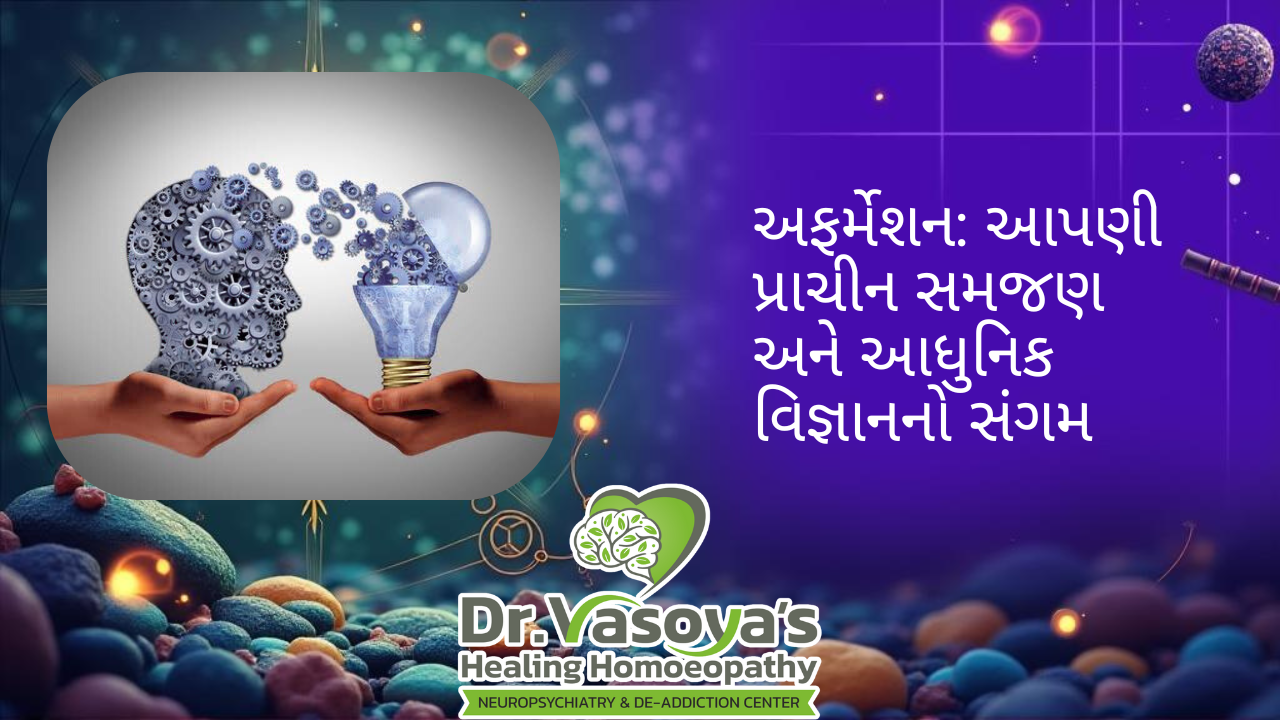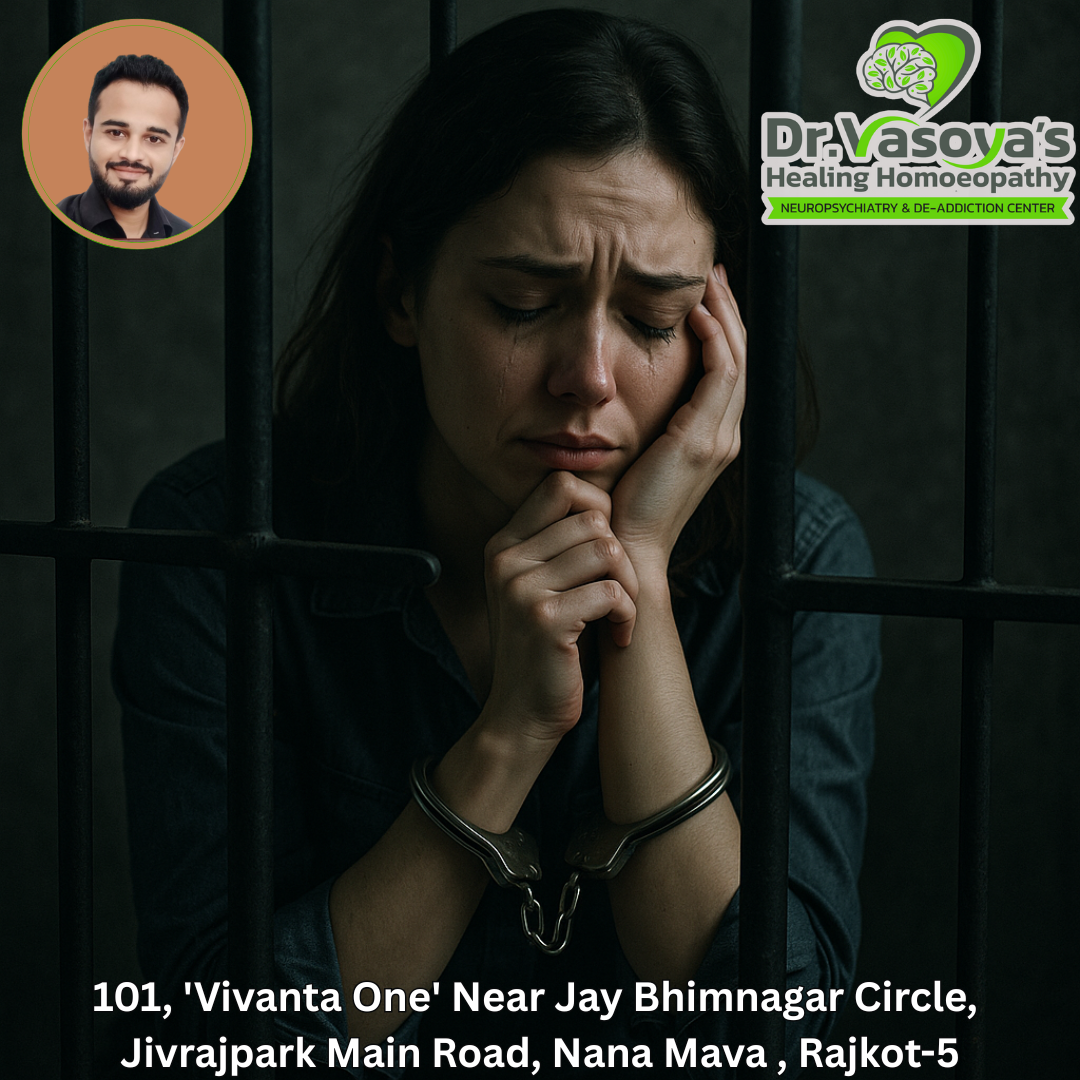
Shame: The Hidden Root of Psychological Disorders
By Dr. Vivek G. Vasoya, MD
(Homeopathic Psychiatrist & Psychotherapist)
In today’s fast-paced, hyperconnected world, mental health issues are on the rise. Anxiety, depression, personality disorders, and various other psychological ailments plague individuals across all age groups. While multiple factors contribute to these disorders, one underlying cause often goes unnoticed—shame. Shame, a deeply ingrained emotional response, shapes our self-perception and interactions with society. Its impact is profound, yet it remains largely unaddressed.
The Everyday Reality of Shame
Modern society imposes unrealistic expectations on individuals. Social media sets impossible standards of beauty, success, and happiness. Workplace environments demand perfection, leaving little room for human error. Family and cultural conditioning reinforce rigid beliefs about what is acceptable and what is not.
Consider the case of a young professional constantly comparing themselves to influencers on social media. Despite achievements, they feel inadequate. Every perceived failure—whether missing a deadline or struggling in relationships—fuels their inner critic, whispering, “You are not good enough.” This chronic self-doubt leads to anxiety and, over time, depression.
Or take the example of a student who struggles academically. Instead of being guided with patience, they are shamed for their poor performance. Their self-worth diminishes, and they internalize a belief that they are inherently incapable. As they grow, this unresolved shame manifests as avoidance, low self-esteem, or even social withdrawal.
Understanding the Psychology of Shame
Shame is different from guilt. While guilt arises from recognizing a wrongful act, shame makes a person feel that they themselves are fundamentally flawed. It is deeply rooted in the fear of rejection, failure, or being seen as unworthy.
Neurologically, shame activates the same brain regions associated with physical pain. The body responds with stress hormones, leading to anxiety, depression, and even physical symptoms such as chronic fatigue, digestive issues, and immune dysfunction. Over time, unresolved shame becomes the breeding ground for more severe psychological disorders, including obsessive-compulsive disorder (OCD), eating disorders, and addiction.
Breaking Free: Resolution and Healing
Addressing shame is crucial for emotional well-being. Healing requires a conscious effort to break the patterns that reinforce it.
Self-Awareness: The first step to overcoming shame is recognizing it. Acknowledging one’s feelings without judgment helps in understanding its origins.
Compassion Over Criticism: Practicing self-compassion by treating oneself with kindness, as one would a friend, reduces self-directed negativity.
Therapeutic Interventions: Psychotherapy, especially cognitive-behavioral therapy (CBT) and acceptance and commitment therapy (ACT), helps individuals reframe their self-perception.
Authentic Communication: Expressing emotions, whether through journaling, talking to a trusted friend, or seeking professional help, alleviates internalized shame.
Mindfulness and Meditation: Practicing mindfulness cultivates a non-judgmental awareness of thoughts and emotions, preventing shame from taking control.
A Supportive Environment: Surrounding oneself with understanding individuals who encourage growth rather than induce shame is essential.
Conclusion
Shame, when left unchecked, silently erodes mental health. In the modern world, where judgment is omnipresent, fostering self-acceptance and emotional resilience is the key to psychological well-being. By addressing the root cause—shame—rather than just its symptoms, we can pave the way for a mentally healthier society.
The journey to healing begins with self-awareness, self-compassion, and a commitment to breaking free from the chains of shame. As mental health professionals and individuals, it is our responsibility to recognize and address this silent affliction before it takes a deeper toll.
-Dr. Vivek G. Vasoya, MD
(Homeopathic Psychiatrist & Psychotherapist)




















Write a comment ...